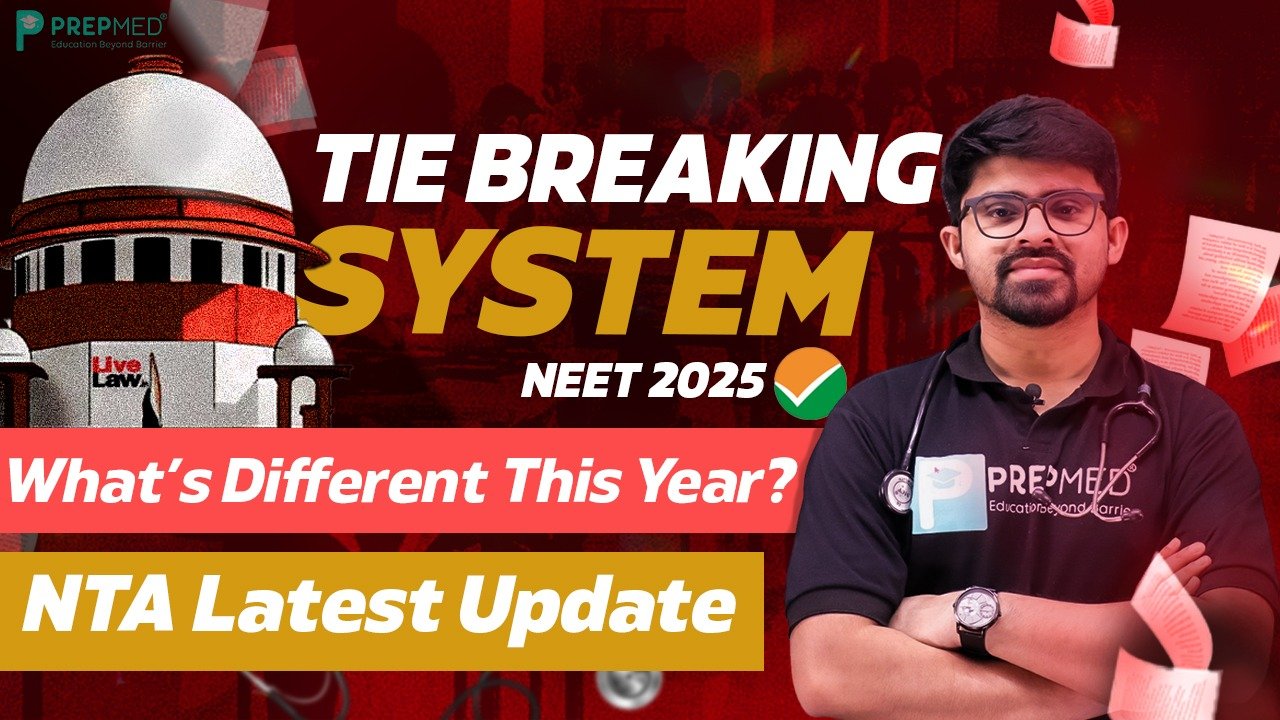February 15, 2025
NEET 2025 Tie-Breaking System: What’s Different This Year?
If two or more candidates in NEET UG 2025 achieve equal marks/percentile scores, the inter-se-merit shall be determined as follows:
- Higher preference will be given to the candidate obtaining higher marks/percentile scores in Biology (Botany & Zoology) in the All India Rank (AIR) list of NEET UG 2025, followed by
- The candidate obtaining higher marks/percentile score in Chemistry, followed by
- The candidate obtaining higher marks/percentile score in Physics followed by
- If the tie still exists, priority will be given to the candidate with less proportion of the number of attempted incorrect answers and correct answers in all the subjects in NEET UG 2025, followed by
- The candidate with a small proportion of a number of attempted incorrect and correct answers in Biology (Botany & Zoology), will receive preference in AIR.
- The candidate with a small proportion of attempted incorrect and correct answers in Chemistry will be given priority followed by
- The candidate with less proportion of a number of attempted incorrect answers and correct answers in Physics.
- If these seven criteria are exhausted and the tie still persists, NTA will resolve them through a random process with the guidance of an independent expert committee.
NEET 2025 Tie-Breaking Rule
Additional methods are now added by the National Testing Agency (NTA) to be able to resolve ties in the National Eligibility cum Entrance Test-Undergraduate (NEET UG 2025) scores if the initial marking criteria are not enough to determine ranks. The NTA has specified in the NEET 2025 information bulletin that an independent expert committee will help decide ties between candidate rankings through a “random process” if the standard seven-point method proves inadequate.
Click here to download the NEET 2025 Information Bulletin PDF LINK
Other modifications in the structure of NEET UG 2025
NTA has introduced several significant modifications to NEET UG 2025 along with the newly added NEET 2025 tie-breaking regulations.
- Candidates now have the option to choose three NEET exam center cities instead of being limited to just two for the examination.
- The NEET 2025 application form requires candidates to list their preferred cities for examination centers according to their preference. Candidates can select all three exam cities but must limit their choices to places within the state where they reside either presently or permanently due to accessibility requirements.
- Number of questions: The NEET 2025 test will include 180 compulsory questions from Physics, Chemistry and Biology(Botany and Zoology).
- Time Duration: The examination period will last 3 hours and candidates will have a total of 180 minutes to complete the questions.
- No more optional questions: The NEET UG 2025 exam format became simpler because optional questions which emerged during COVID-19 were eliminated.
- Additional Entry Time: NEET UG 2025 exam centres will now be opened three hours before the exam starts, which was two hours previously.
- The exam will be conducted from 2:00 PM to 5:00 PM, with centres opening at 11:00 AM.
- Candidates must submit a scanned image of their passport-size photo during their NEET UG 2025 application which must have been taken after January 1st, 2025.
Ace your results for NEET UG 2025 by enrolling into PrepMed online coaching. Easy-to-understand lessons with immediate support are always provided to enhance your learning.
FAQS:
1. What is the scheduled date of NEET UG 2025?
The NEET UG 2025 will take place on 4th May 2025, Sunday.
2. Will my ranking be affected by the NEET 2025 tie breaking rules?
Yes, if the same marks are scored by multiple candidates, your rank will be decided based on the 7 tie breaking rules as mentioned by NTA, ensuring a fair and transparent ranking system.
3. What will happen if all the 7 step NEET 2025 tie breaking criteria fail?
An independent expert committee will conduct a random selection process to make final decisions when all established tie-breaking rules prove insufficient to determine ranks.






